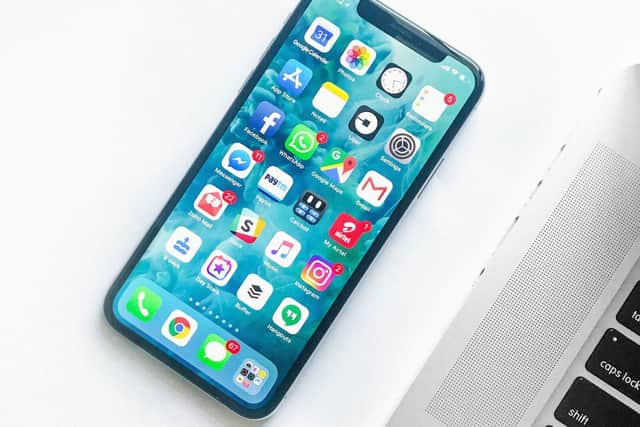Behind the Filtered Life: The damaging effects of social media
and live on Freeview channel 276
In examining the effects of social media on children and young people in the UK, several key statistics emerge, highlighting the broad landscape of impacts posed by these platforms.
A report by Ofcom revealed that a substantial number of children aged 8 to 17 are engaging with rapidly changing social platforms such as social media, live streaming, and video-sharing[1%5E]. This increased engagement can produce harmful effects, especially when coupled with the finding by Amnesty International that 59% of young people spend more than two hours daily on social media[2%5E].
Advertisement
Hide AdAdvertisement
Hide AdOne area where this manifests strongly is body image. A study suggests that social media triggers children to develop a negative perception of their bodies[3%5E]. This effect is particularly potent among young girls: one in three girls becomes unhappy with their appearance by the age of 14[4%5E].


Another point worth noting is how this impact differs between genders and across ages. According to research conducted by the University of Oxford, girls may experience detrimental effects of social media as early as ages 11-13, while boys feel similar effects at ages 14-15[5%5E].
These statistics emphasize the sprawling impacts of social media on children and young people in the UK, with implications spanning self-perception, body image, and mental wellbeing.
Sources:
Social Media: The Unhealthy Comparison Cycle
A key issue arising from social media use is the propensity for individuals to draw comparisons between their own lives and the pixel-perfect glimpses of others’ lives they see online. The artfully catered feeds, boasting travel-filled lifestyles, picture-perfect relationships, and aesthetically pleasing meals, rarely reflect the raw reality of everyday life. Consequently, users can feel a mounting sense of inadequacy when their own lives don't mirror the seemingly glamorous ones they observe online.
Advertisement
Hide AdAdvertisement
Hide AdA study published by the American Journal of Epidemiology found "Facebook use was negatively associated with well-being," as users develop a distorted world view, spurring feelings of envy and lowering their self-esteem.
The Allure of Instant Gratification
The pursuit for validation is a fundamental human instinct, but social media magnifies this tendency to dangerous proportions. Each 'like', comment, or share becomes a hit of instant gratification, releasing a fleeting burst of dopamine. This can lead to an unhealthy reliance on social media for self-worth, raising anxiety levels, triggering depressive episodes and fostering addictive behaviors.
Dismantling Self-Love
Obsession with social media can undermine self-love. The validation loop encourages people to spend significant time and energy managing their online personas, often masking their true selves. This creates a dissonance between their real and virtual identities, reinforcing feelings of isolation and fraudulence - damaging their relationship with their authentic self, and potentially leading to mental health disorders.
The FOMO Phenomenon
Fear Of Missing Out, or FOMO, characterizes anxiety that an exciting or interesting event may be happening elsewhere and is often exacerbated by posts seen on social media. This can foster low self-esteem, increased feelings of loneliness and dissatisfaction with life. A study in the Journal of Social and Clinical Psychology discovered that "comparing oneself to others on Facebook is linked to depressive symptoms".
Distortion of Body Image
Advertisement
Hide AdAdvertisement
Hide AdThe omnipresence of carefully curated images on social media also impacts body positivity and self-love negatively. Selfies and portraits are often photoshopped and filtered, leading to unrealistic body standards. The pressure to attain such a body may contribute to several mental health issues, including body dysmorphia, eating disorders, and severe self-esteem issues.
The Path to Balance
Despite documenting the perilous effects of social media, it is crucial to remember that it’s not inherently evil. Instead, like most things, it's how we use it. Promoting mindful social media use can help reduce its potential harm. This could involve setting usage limits, unfollowing accounts that negatively affect self-perception, and remembering that what we see online is often a carefully chosen snippet of reality.
Let us strive to understand the power of social media and use it judiciously, remaining conscious of the potential cost that comes with this interconnected world. After all, behind every filtered life there's an unfiltered reality – full of flaws, struggles, and triumphs – and that truly is the essence of being human. - Joe Plumb
Oringinally posted on: https://www.joeplumb.org/post/behindthefilteredlife